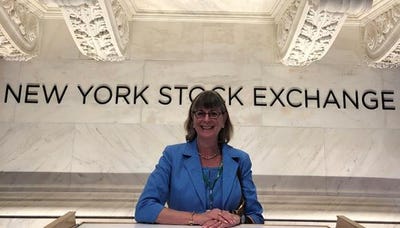Solid Waste Makes Its Case

During the month of March, the publicly-traded solid waste companies participated in a number of investor conferences, and all emphasized the positive fundamentals underpinning the industry. In this month’s edition of the Business Report, we present highlights from their updates, as well as color on GFL Environmental’s most recent, large acquisition.
Solid Waste as a Reopening Play and the Strong Housing Market Should Provide Further Impetus
Although all of the solid waste companies’ commercial volumes and businesses have rebounded off the lows recorded in the second quarter, large swathes of the business are still shut or restricted, particularly in the entertainment, hospitality, leisure, restaurant and education sectors.
Waste Connections (WCN) estimates commercial revenues are still down roughly $100 million from pre-pandemic levels, while Waste Management (WM) noted that it services numerous sports venues, and that 12% of its commercial business is in education, which remains remote or hybrid in many areas. GFL Environmental (GFL) noted that Canada may be roughly three months from reopening, providing future upside not just for its solid waste business, but likely its soil and liquid businesses as well, which are expected to benefit from reopening in the fourth quarter. Republic Services (RSG) had perhaps the shallowest decline, and the largest recovery of its commercial customers, as it noted that less than 1% of its customers are not open, though management also noted that many customers are operating at service levels below the prior peak pre-pandemic.
Although the solid waste industry has traditionally been late cycle and volumes have lagged an economic recovery, this time the cycle may well play out differently, given the unique characteristics of the pandemic-induced downturn. Additionally, commercial volumes have also tended to track housing activity (single family housing starts), albeit with a lag. The current strong housing market could provide further growth into 2022 and 2023.
In general, the volume forecasts provided by management teams as part of overall guidance anticipated little to no commercial recovery from fourth quarter levels, with WCN and GFL arguably the most conservative, and only some recovery baked into the higher end of Casella Waste’s (CWST), WM’s and RSG’s 2021 anticipated volume ranges. Commentary by WCN noting some continued sequential improvement, GFL citing a volume ramp in March, and the fact that RSG is adding customer service employees are positive indicators that volume guidance will likely prove conservative or is tracking at the higher end of forecasts.
Solid Waste Likes Inflation
Anywhere between 20%-40% of the solid waste business (notably in residential and parts of disposal) is tied to some form of a CPI-linked pricing index (though there has been some transition to water, sewer and trash indices), thus current stock market concerns about rising inflation could be viewed positively for the industry, if not in 2021, benefitting 2022 and beyond, given the lag factor in the CPI resets.
Historically, the solid waste companies have also been able to price for increasing costs, particularly labor and regulatory costs. Any resurgence in inflation is likely to further underpin industry pricing discipline, which has proven to be remarkably resilient during the recent downturn. Any return of commercial volumes will also provide further tailwinds to the ability to price. As a result, confidence in pricing forecasts is high, though perhaps not with the upside potential characterizing the volume forecasts.
Commodities Are Now Firmly a Tailwind
Old corrugated cardboard (OCC) pricing rose again in March, from $74 per ton on average in February to nearly $80 per ton, or around 8%, according to RISI, and industry experts are now forecasting more consistent, longer lasting OCC strength, despite the China import ban, given the drivers of e-commerce on packaging and the new domestic paper mill capacity coming on line that utilizes recovered paper as feedstock.
That said, all types of recycled commodities, from aluminum to various plastic grades, are also on the rise. As a result, the commodity-driven parts of the business are now firmly a tailwind in 2021, and if current levels are maintained, could prove to be a source of earnings upside as commodity prices are now generally higher than what was imbedded into managements’ 2021 expectations. Similarly, D3 RINs pricing stood at over $2.90 at the end of March, well up from ~$2.50 in early February, and the 2020 average of around $1.50, primarily aiding WCN and WM. It also looks like E&P waste may be off the bottom, primarily benefitting WCN and RSG.
Increasing Regulation and Potential Legislation Also Seen as a Likely Positive
Despite the fact that any stricter PFAS regulation would increase costs, particularly for leachate management, management teams were largely sanguine about it, noting their past ability to pass on regulatory costs and the likely competitive advantage they would have over smaller firms in terms of being better able to absorb the costs and make the necessary capital expenditures to comply. And, as we have noted in recent Waste360 Business Reports, landfills are likely to be considered part of the solution, given their sequestration capabilities, and the difficult permitting and/or concerns surrounding other remediation technologies, such as deep well injection or incineration. Any infrastructure legislation was viewed as a positive driver for special waste.
GFL Leading the Early Charge on M&A
Although WM is busy digesting the Advanced Disposal acquisition, and WCN has described 2021 so far as a “normal course acquisition year”, RSG and CWST still see outsize opportunities and anticipate greater than normal M&A activity; RSG largely due to the pending acquisition of Santek, which should be closing shortly and CWST due to the unique disposal supply/demand conditions in the Northeast, which have stressed a number of small haulers. The acquisition of Tunnel Hill Partners by Wheelabrator Technologies (to be rebranded as WIN Waste Innovations) has also created a very large Northeast private with almost $1 billion in projected annual revenue that is also expected to be a major acquirer of assets going forward.
However, GFL is certainly leading the early charge, with the March announcement that it had entered into a definitive agreement to acquire Canada-based Terrapure Environmental, with revenues of C$375 million, for a purchase price of C$927.5 million. Terrapure was perhaps more under the radar for the other solid waste companies, given its larger orientation to liquids management and environmental services, which complement and enhance GFL’s current business profile. GFL management emphasized that Terrapure “was just too good to pass up”, as they paid a multiple of ~9.5x EBITDA on pandemic-impacted revenue and EBITDA. With conservative synergy assumptions, the multiple paid falls to ~8.5x. The acquisition is expected to be accretive across all measures and contains the key asset of the Stoney Creek industrial landfill, which recently received a 14+ year expansion and has significant upside potential to its current tonnage intake. GFL sees numerous opportunities to cross sell and acquire tuck-ins to fill in “white space” in Canada, while a large part of its current M&A pipeline is in existing solid waste markets in the US.
Transition
At the end of March, RSG announced that its long-time CEO and industry veteran Don Slager was retiring and would be succeeded by President Jon Vander Ark, in what was described as a thoughtful and comprehensive succession planning process. We wish Don all the best in his retirement!
About the Author
You May Also Like


.png?width=300&auto=webp&quality=80&disable=upscale)

